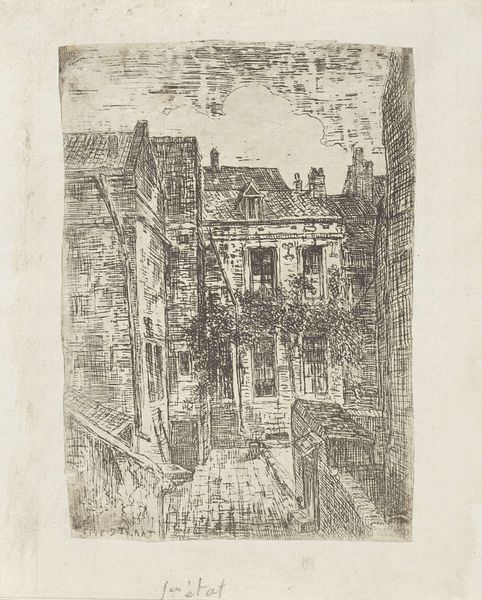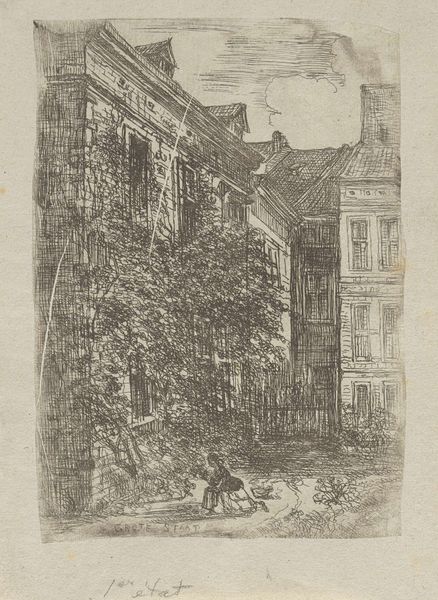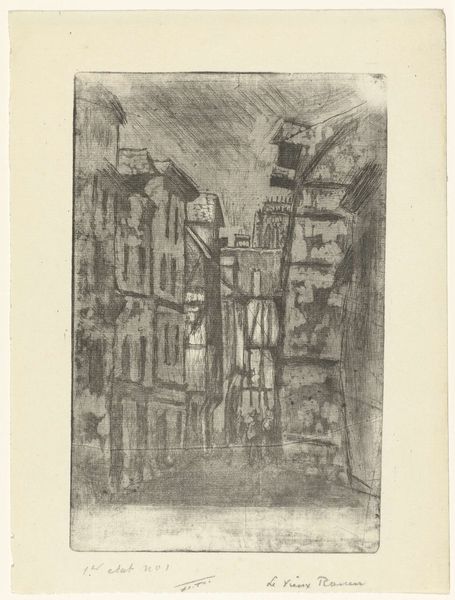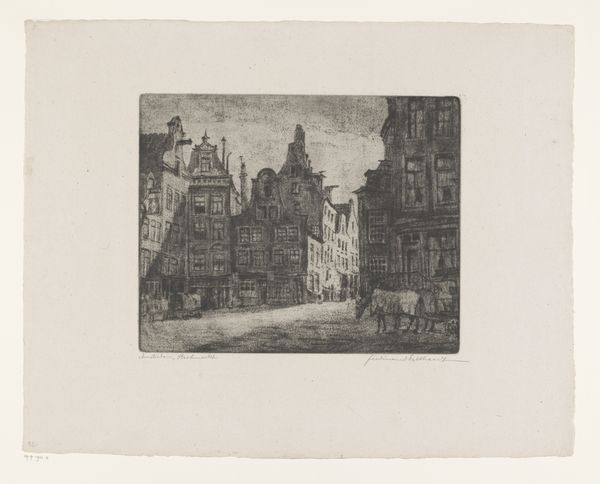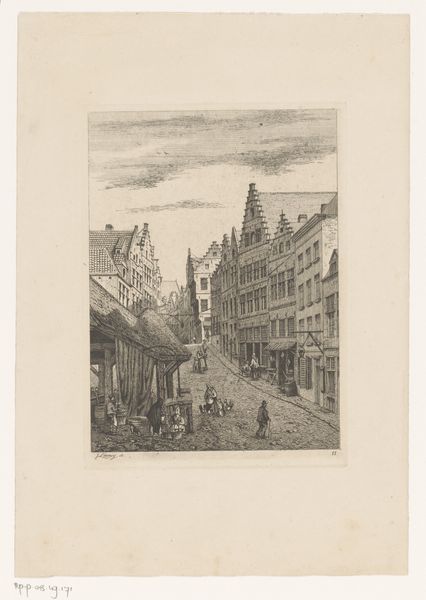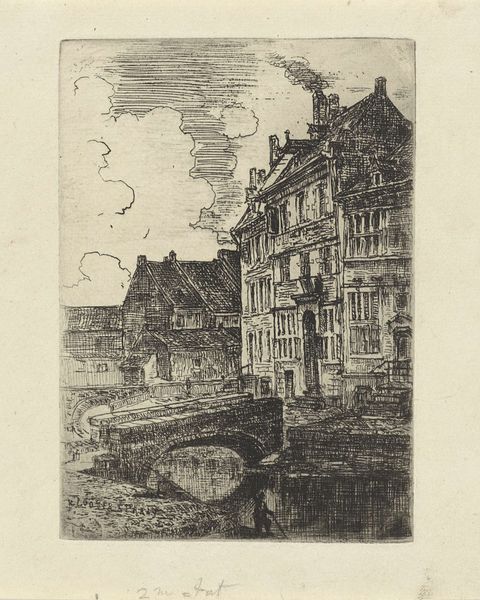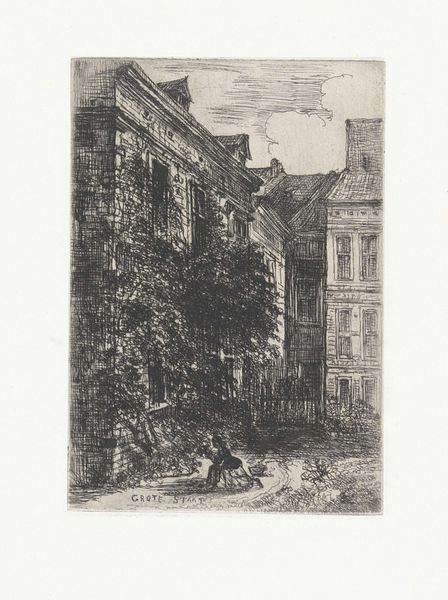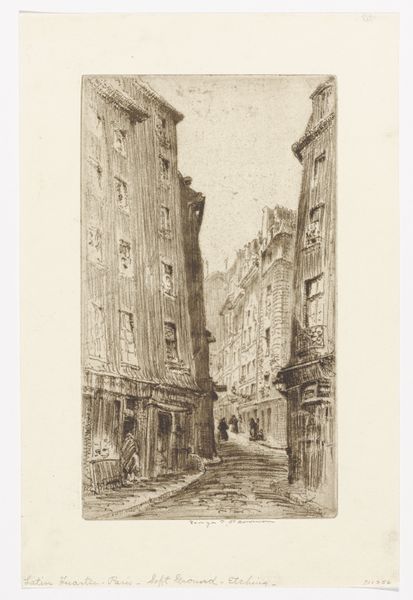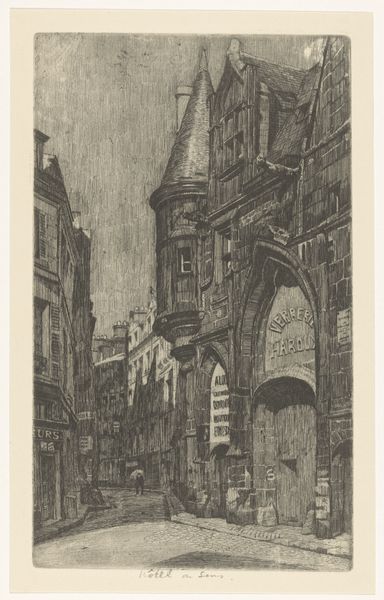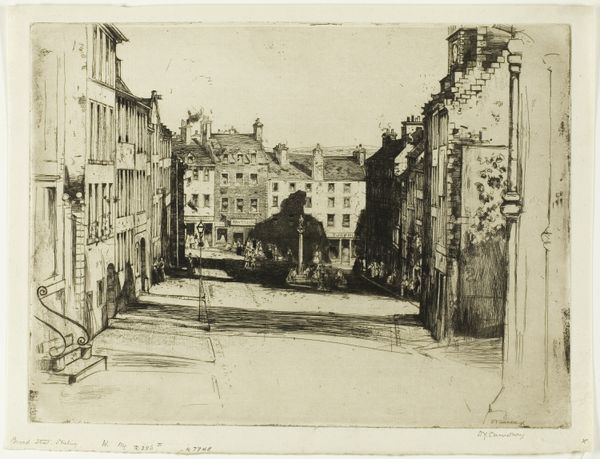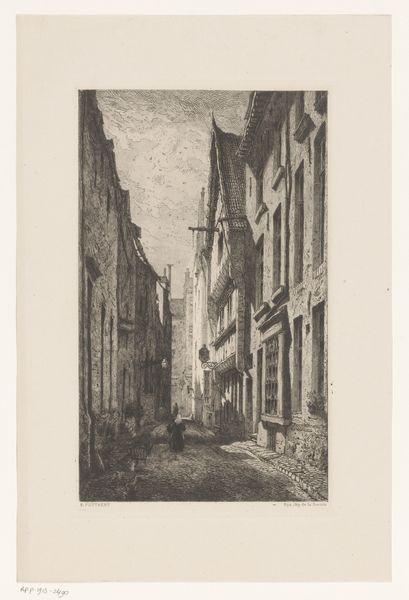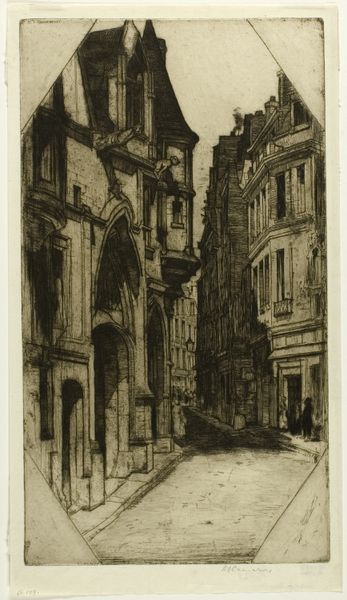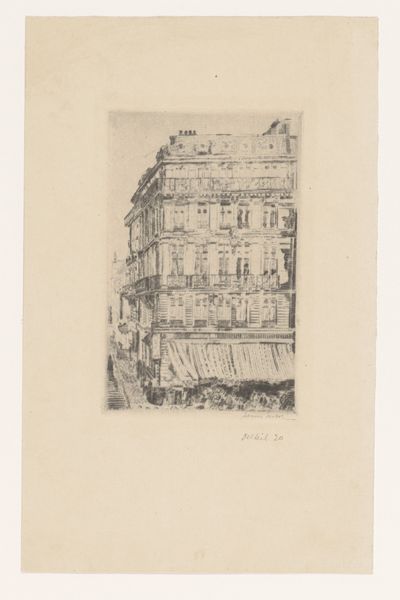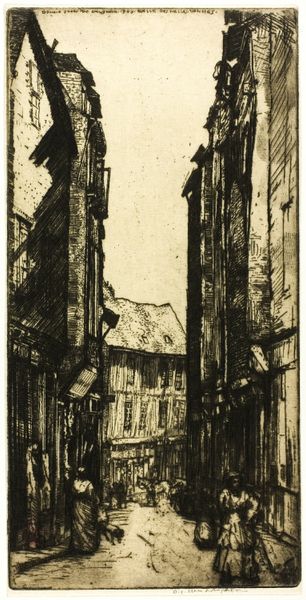
drawing, print, etching
#
drawing
# print
#
etching
#
etching
#
cityscape
#
realism
Dimensions: height 181 mm, width 130 mm
Copyright: Rijks Museum: Open Domain
Curator: Alexander Schaepkens' etching and print, “Kersenmarkt te Maastricht,” made sometime between 1830 and 1899, invites us to consider a past cityscape held within the Rijksmuseum collection. What strikes you first about it? Editor: Its austerity. Stark, almost haunted. The scene feels sparsely populated, almost deserted, save for those few figures swallowed by the imposing architecture. It is strangely melancholy. Curator: That feeling resonates, considering etchings were often vehicles for both documentation and imaginative rendering. What architectural motifs do you recognize? Editor: I'm drawn to that off-kilter building on the left. The artist makes sure it almost touches us, the viewers. It has a haphazard, lived-in feeling, which lends it character. And the looming spire in the distance anchors the scene, reminding us this is more than just a street. There’s history layered in every line, it feels like. Curator: Observe the linework: chaotic in shadows, sparse in light. How might this artistic decision amplify a viewer's perception? Editor: Absolutely! It captures the inherent transience of city life. Etchings and prints feel appropriate, a means to replicate memory. Even its supposed realism evokes a dream. A reconstruction of something the artist loved and needed to remember. I imagine walking there. It is an intimate moment. Curator: It’s an invitation to step into a tangible past. Thank you for articulating this sentiment so well, lending a new perspective to the symbolic depth within this seemingly straightforward cityscape. Editor: Thanks, that's the goal, isn't it? Hopefully it evokes memories in the visitor, or kindles curiosity about Maastricht's historical tapestry.
Comments
No comments
Be the first to comment and join the conversation on the ultimate creative platform.
